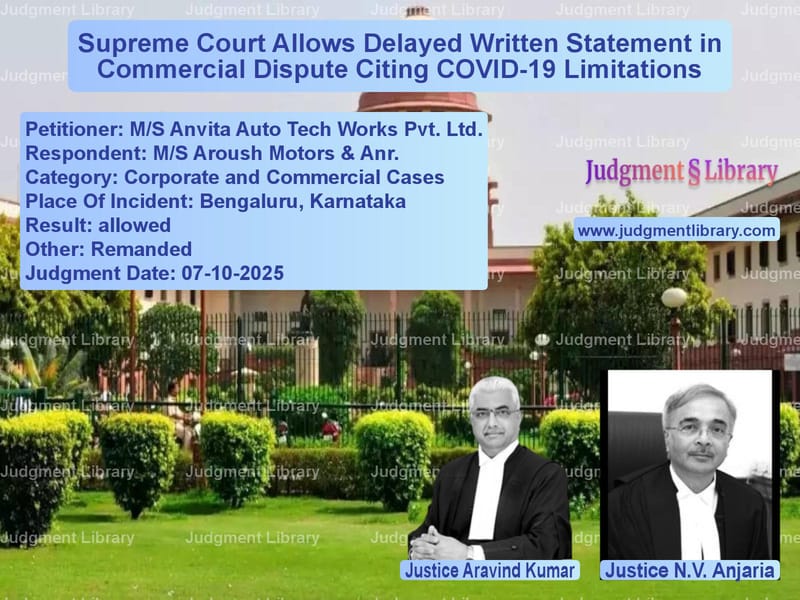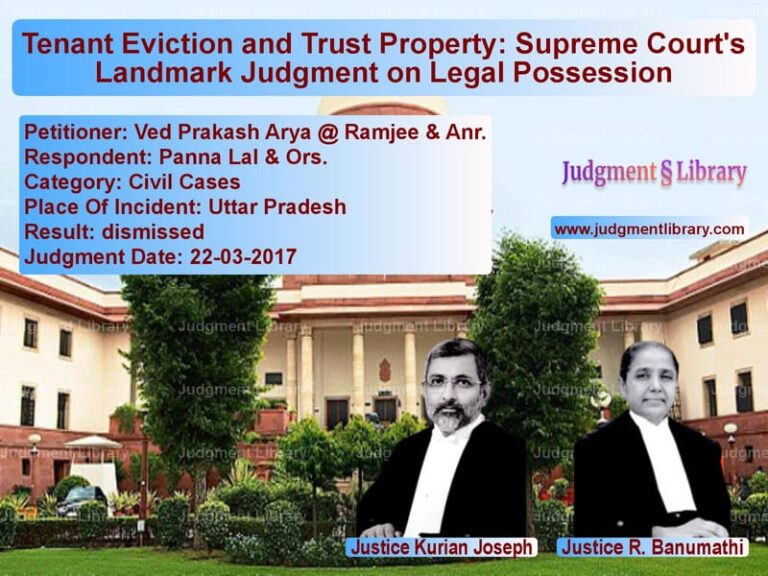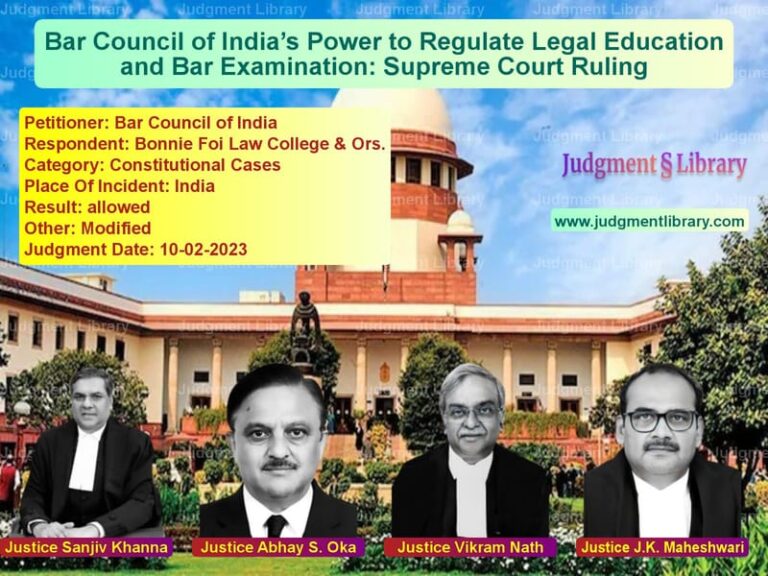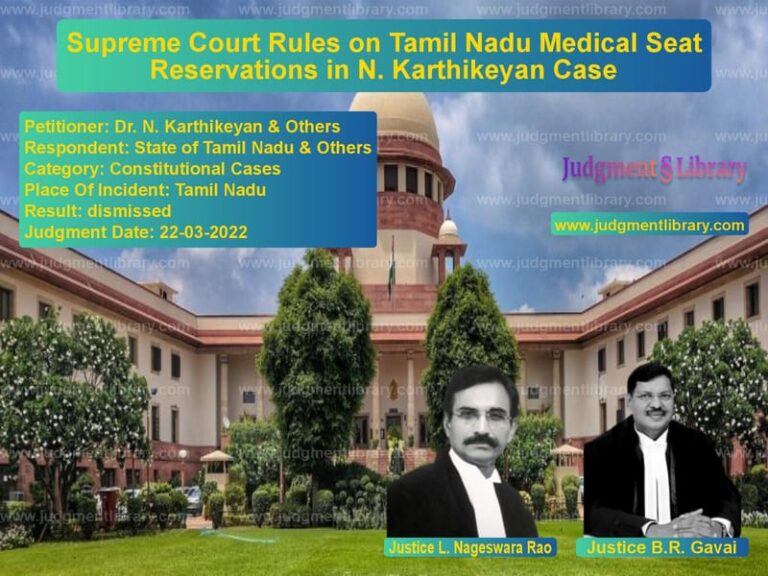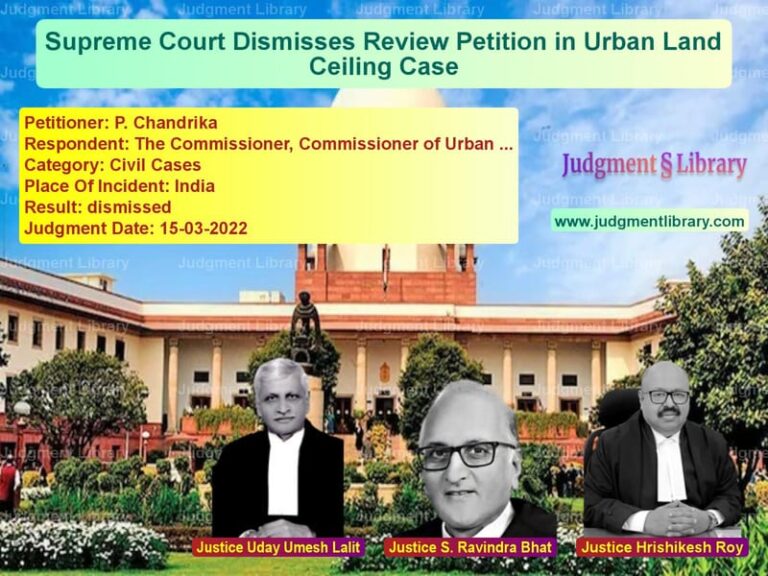Supreme Court Allows Delayed Written Statement in Commercial Dispute Citing COVID-19 Limitations
In a significant ruling that balances procedural rigor with substantive justice, the Supreme Court of India recently set aside judgments from lower courts that had denied a defendant the right to file a written statement and cross-examine witnesses in a commercial dispute. The case involved M/s Anvita Auto Tech Works Pvt. Ltd., which had appealed against M/s Aroush Motors after both the Commercial Court and High Court of Karnataka refused to accept its written statement filed beyond the 120-day statutory period, ultimately decreeing the suit against them without considering their defense.
The Background of the Commercial Dispute
The dispute originated from a dealership agreement for CFMOTO motorcycles in Bengaluru. The plaintiff, M/s Aroush Motors, claimed to have invested significant sums—Rs. 20 lakhs as security deposit, Rs. 70 lakhs towards spare parts and initial stock, and additional payments for service center equipment—based on the defendant’s representations. However, the business allegedly stalled when the defendant failed to supply upgrade kits to convert BS-IV motorcycles to BS-VI standards after a government ban, leading the plaintiff to terminate the dealership and sue for recovery of Rs. 1.78 crores with interest.
Procedural History and Key Dates
Summons were served on the defendant on July 17, 2021, commencing the 120-day period for filing a written statement, which expired on November 14, 2021. The defendant filed multiple applications seeking extensions, citing reasons including the COVID-19 pandemic and the company’s non-residence in Bengaluru. Despite filing the written statement on January 7, 2022, along with an application seeking condonation of delay, the Trial Court rejected it on March 22, 2022. Subsequently, the defendant’s right to cross-examine the plaintiff’s witness was also forfeited, and the suit was decreed ex parte on November 15, 2022. The High Court upheld this decision, leading to the appeal before the Supreme Court.
Arguments Presented by the Appellant
Shri Pb. Suresh, Learned Senior Counsel for the appellant, contended that the lower courts erred in rejecting the written statement, violating the Supreme Court’s orders in Suo Motu Writ Petition (C) No. 3 of 2020, which extended limitation periods due to COVID-19 from March 15, 2020, to February 28, 2022. He relied on precedents including Babasaheb Raosaheb Kobarne & Anr. v. Pyrotek India Private Limited and Ors. and Prakash Corporates v. Dee Vee Projects Limited, arguing that the statutory timeline should not be rigidly applied during the pandemic.
He further submitted that “failure on the part of the defendant to file the Written Statement within the time permitted by the court would not tantamount to pronouncement of judgment against the defendant,” citing Asma Lateef v. Shabbir Ahmad. He emphasized that “even without filing of written statement, the right to cross-examine survives” and that denying this right defeated substantial justice, as held in Ranjit Singh v. State of Uttarakhand. He argued that Order VIII Rule 10 CPC does not empower courts to automatically pass a decree without assessing whether a prima facie case is made out.
Arguments Presented by the Respondent
Shri Balaji Srinivasan, representing the respondent, argued that the defendant’s right to cross-examination stood forfeited due to non-filing of the written statement within the statutory period. He highlighted that the defendant had multiple opportunities but willfully chose not to exercise its rights. He stated that the defendant never challenged the order closing the stage for cross-examination nor filed for its recall, thus acquiescing to the proceedings.
He further submitted that “Defendant No. 1 has approached this Court with unclean hands. Its conduct before the courts below reveal a consistent pattern of dilatory tactics, false pleadings, and abuse of process.” He characterized the appeal as a last-ditch effort to delay the execution of the decree, emphasizing that the defendant’s conduct disentitled it to relief.
The Supreme Court’s Analysis and Reasoning
The Supreme Court framed the central issue as: “Whether the High Court was correct in observing that on account of non-filing of written statement by the defendant, his right to cross-examination is taken away?”
The Court began by reiterating the philosophical foundation of procedural law, quoting Justice V.R. Krishna Iyer: “Procedural law is not to be a tyrant but a servant, not an obstruction but an aid to justice. It is the handmaid of justice and not its mistress.” The Court emphasized that procedural rules should advance justice, not thwart it, and that technicalities must yield where substantial justice is at stake.
On the mandatory 120-day timeline for filing written statements in commercial disputes under Order VIII Rule 1 CPC, the Court acknowledged the precedent in SCG Contracts (India) Pvt. Ltd. v. K.S. Chamankar Infrastructure Private Limited, which held the timeline to be mandatory. However, it noted that the period from July 17, 2021, to November 14, 2021, fell within the COVID-19 limitation extension period mandated by In Re: Cognizance for Extension of Limitation. The Court referenced its orders, which stated: “the period from 15.03.2020 till 28.02.2022 shall stand excluded for the purposes of limitation as may be prescribed under any general or special laws in respect of all judicial or quasijudicial proceedings.”
Citing Aditya Khatian & Ors. v. IL & FS Financial Services Limited, Babasahab Raosaheb Kobarne, and Prakash Corporates, the Court held that the lower courts should have excluded the COVID-19 period when computing the 120-day limit. It noted that the defendant had filed applications for extension within the extended timeframe, and thus, the written statement ought to have been accepted.
On the denial of cross-examination, the Court strongly condemned the Trial Court’s action, stating: “The said reason is absolutely perverse and is contrary to the right of defence available to the defendant.” Quoting from Ranjit Singh v. State of Uttarakhand, the Court held: “Even if a defendant does not file a written statement and the suit is ordered to proceed ex-parte against him, the limited defence available to the defendant is not foreclosed. A defendant can always cross-examine the witnesses examined by the plaintiff to prove the falsity of the plaintiff’s case.”
The Court’s Decision and Directions
Allowing the appeal, the Supreme Court set aside the impugned judgments and remanded the matter to the Trial Court. It directed that the appellant be permitted to file its written statement subject to payment of costs of Rs. 1,00,000 and to exercise its right to cross-examine the plaintiff’s witnesses. The Court requested the Trial Court to dispose of the suit expeditiously, preferably within six months.
This judgment underscores the judiciary’s commitment to ensuring that procedural mandates do not override substantive justice, especially in extraordinary circumstances like the COVID-19 pandemic. It reaffirms that the right to defend, including cross-examination, is fundamental and cannot be extinguished merely on procedural defaults, aligning with the principle that justice must not only be done but must be seen to be done.
Petitioner Name: M/S Anvita Auto Tech Works Pvt. Ltd..Respondent Name: M/S Aroush Motors & Anr..Judgment By: Justice Aravind Kumar, Justice N.V. Anjaria.Place Of Incident: Bengaluru, Karnataka.Judgment Date: 07-10-2025.Result: allowed.
Don’t miss out on the full details! Download the complete judgment in PDF format below and gain valuable insights instantly!
Download Judgment: ms-anvita-auto-tech-vs-ms-aroush-motors-&-supreme-court-of-india-judgment-dated-07-10-2025.pdf
Directly Download Judgment: Directly download this Judgment
See all petitions in Contract Disputes
See all petitions in Company Law
See all petitions in Commercial Arbitration
See all petitions in Corporate Compliance
See all petitions in Debt Recovery
See all petitions in Judgment by Aravind Kumar
See all petitions in Judgment by N.V. Anjaria
See all petitions in allowed
See all petitions in Remanded
See all petitions in supreme court of India judgments October 2025
See all petitions in 2025 judgments
See all posts in Corporate and Commercial Cases Category
See all allowed petitions in Corporate and Commercial Cases Category
See all Dismissed petitions in Corporate and Commercial Cases Category
See all partially allowed petitions in Corporate and Commercial Cases Category

